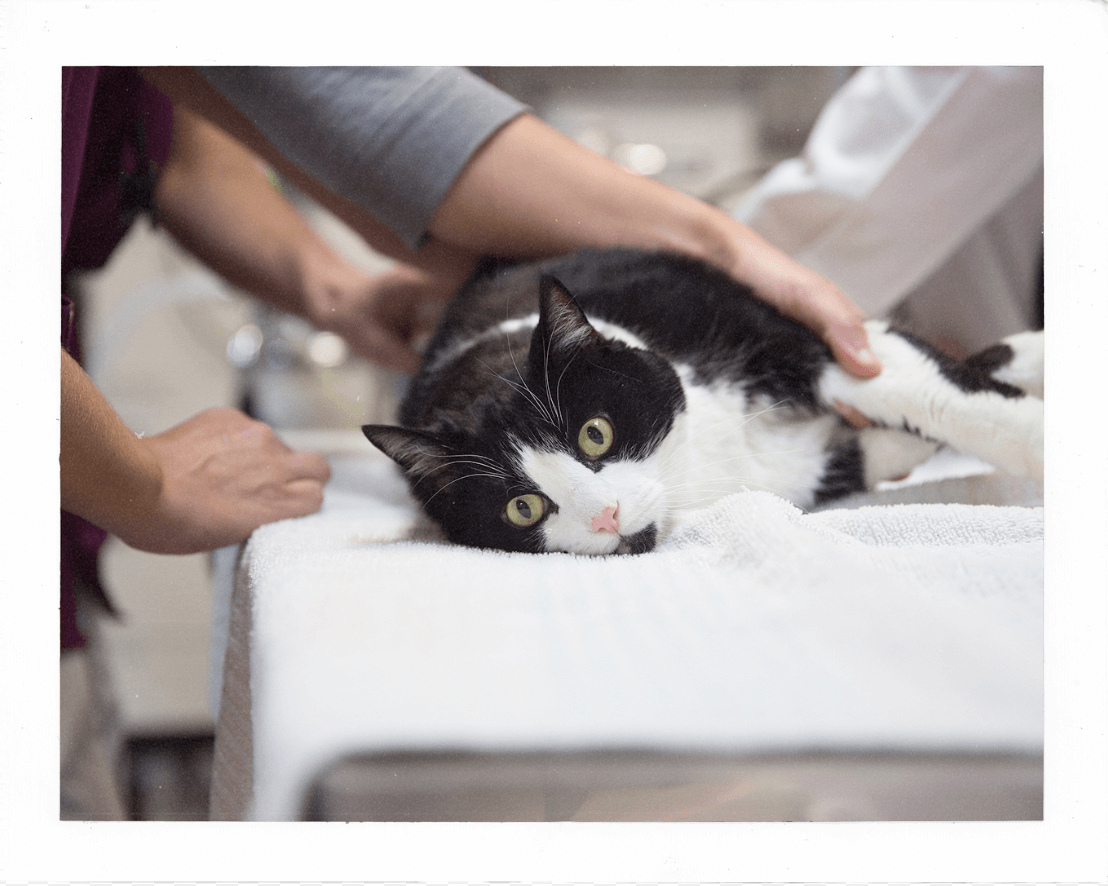Wellness Exam
Preventative wellness exams are critical to maintaining your pet’s health and quality of life. Our vets take their time while evaluating your pet, providing a complete head-to-tail exam. We examine the eyes, ears, heart, lungs, skin, coat, and teeth. We will talk about nutrition, heartworm disease, supplements, preventative medicines, and activity & lifestyle, offering recommendations to keep your pet healthy and happy. We believe in partnering with our clients when it comes to patient care, we listen and work together. We are the veterinary professionals, but you are their family, we respect that relationship and your opinion. Together we will determine your pet’s health needs.
Vaccinations
Common core vaccinations (which are the vaccinations all dogs should have) are Rabies, and DAP. Rabies vaccination is required in Maricopa County and helps to protect your pet should they come in contact with a rabid animal. The DAP vaccine is commonly referred to as “three in one, five in one, combo, parvo shot, etc”. The DAP actually stands for Distemper, Adenovirus and Parvovirus, three deadly viruses that are easily prevented by vaccination. Other dog vaccines are “risk based” and include, Bodetella (kennel cough), Leptospirosis, Lyme and Rattlesnake. Risk based vaccines are simply vaccines that pets need based on their activity level and lifestyle. This is where we help you determine what diseases your pet is at risk for, and what vaccines they should get.
Feline vaccinations include Rabies, FVRCP (Feline Viral Rhinotracheitis, calicivirus, and panleukopenia) and Leukemia. You may think that your indoor cat doesn’t need vaccines, but this can be untrue. Even an indoor kitty can be at risk for Rabies if a rabid bat or other wild animal comes in contact with them. As odd as it sounds, bats have been known to fly down chimneys, or land on patios, both places your kitty might play. Other diseases, such as the ones in the FVRCP vaccine, can be transmitted to your cat from contaminated clothing and shoes. It’s always a good idea to get your kitty tested at least once in their lifetime (usually after adopting them) for feline leukemia and feline aids, both highly contagious viruses. The test is simple; just a few drops of blood and about 10 minutes are all that is needed.
Parasite Prevention
Parasites are not only yucky to think about, they can be life threatening in some cases. This is the case with Heartworm. Heartworms are transmitted to pets through mosquitoes. A mosquito bites an infected animal, then bites your animal and passes on baby heartworms (or larvae) into the blood stream. Those baby heartworms find their way to the chambers of the heart and get nice and cozy. They grow to be very large and can even clog the arteries and vessels of the heart, eventually causing heart failure! Treatment of an established infection in dogs is dangerous for your pet and very costly, and there is no cure for cats. Fortunately prevention is easy! Pets should be tested for heartworm yearly, which is done with a simple blood test requiring only 3 drops of blood. They should also receive preventative every 30 days, which is in the form of a fun, easy to give treat! In this case, preventative is much easier on your pet and much easier on your wallet as well!
Other internal parasites include those that like to live inside the intestinal tract of your pet. These parasites are picked up from areas like soil, contaminated water and feces of other animals. Some parasites can also be transmitted to people, yuck! We recommend annual fecal parasite testing to make sure no creepy crawly internal parasite have made your pet their home, as well as preventatives such as Heartgard, which protect against heartworms, hookworms and roundworms!
One last set of parasites are the external parasites like fleas and ticks. These bugs can be prevented with topical drops or chewable tabs. Although our area does not see a large amount of fleas, we do see ticks! The type of tick that frequents our area is the Brown Dog Tick. Unfortunately this tick likes to make its self cozy. Once in your home it can be very difficult to eradicate. Ticks can also transmit disease like Lyme, and Tick Fever. A simple blood test, which also tests for heartworms, can screen for the most common tick borne diseases and should be done yearly.

Other Preventative Wellness
There are lots of other things to consider when keeping your pet as healthy as possible. These things include microchips, spay/neuter, special diets, bloodwork, ultrasounds, eye testing, blood pressure and many more! When you bring your pet in we can discuss what the best options are based on age, breed and health concerns. As always, you can always call or e-mail with any questions!

